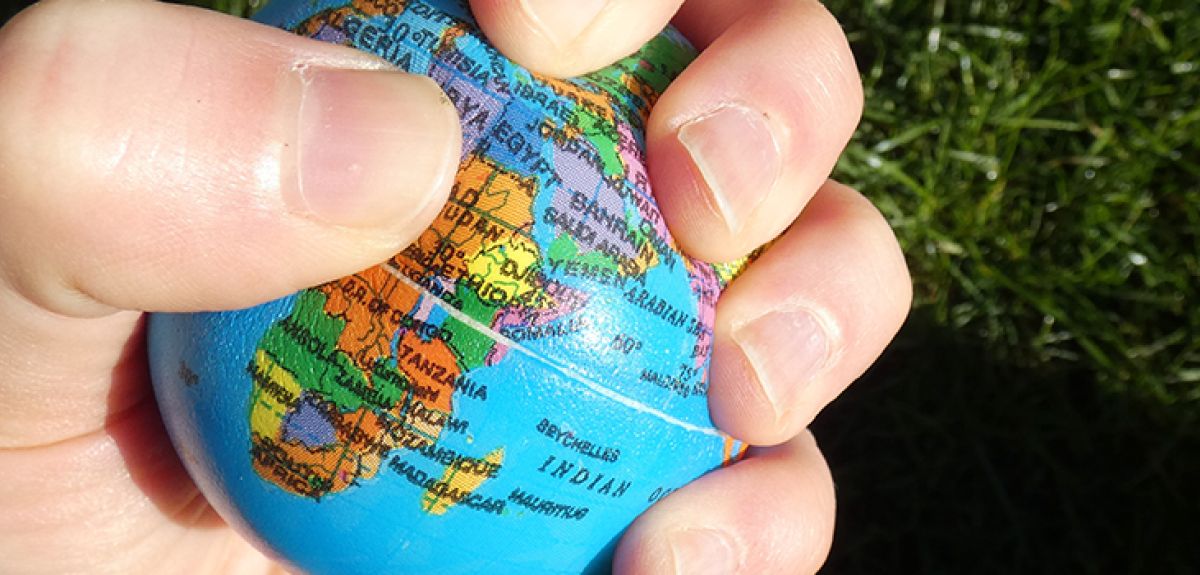
Student Stories: The impact of eco-stress
Raphaella Mascia is studying for a MSc in Biodiversity, Conservation and Management. As an Environmental Science writer, Raphaella examines the unique challenges faced by students in the environmental and conservation fields, including mental health, eco-stress, anxiety and grief.
Understanding student mental health
Global extinction. Climate Change. Habitat Destruction. Climate Migration. Ecosystem Degradation. These are topics covered by many students studying in the field of conservation and the environment. Whether these students are undertaking courses in geography, economics, or biology, such issues carry a heavy weight, which has been shown to impact student mental health particularly.
In recent years, student mental health has come to the fore as educators and administrators have recognised the links between mental health, student wellbeing, and academic and life success.
What is climate stress?
In the past, the name to identify the anxiety—and sadness—associated with major environmental and climate issues, was eco- or climate-grief. But recently, psychologists have switched to recognising this phenomenon as eco- or climate-stress, a more rounded and encapsulating term for all the emotions that fall under this umbrella.
Encounters with these emotions are highly personal and relate to one’s particular experiences with the environment. People’s experiences with environmental issues also vary across racial, geographic, socio-economic, and religious groups, which further contributes to the nuances, differences, and unequal experiences of eco-stress.
The impact on students
Researchers and educators have only just begun understanding and acting on eco-stress in schools and universities. Important questions—like whether eco-stress impacts certain fields differently or how undergraduates encounter eco-stress compared to graduate students—still need to be answered. But it’s clear that those in the fields of the environment and conservation are especially vulnerable as they deal with compounding and converging emergencies and crises. Could this mean that students studying a crisis are actually in a crisis of their own? Many students in these fields face broad challenges related to their studies and work.
The wider picture
Outside of Oxford, such serious and significant subjects continue to affect students and young people around the globe. In a notable study published in 2021, researchers surveyed thousands of young people, ages 16-25, from ten countries. They found that 84% of respondents were at least somewhat worried about climate change and that over 50% of respondents had experienced emotions, which could fall under the umbrella of eco-stress.
What can we do about it?
Beyond the sombre narratives and topics, there’s another factor impacting student mental health in these fields: a lack of diverse and paying work opportunities that allow them to make an impact on the environment. A limited ability to act can promote feelings of eco-stress while researchers have found that feelings of agency foster hope among students and children—hope being an essential counter to negative eco-emotions.
If students want to combat their eco-stress through action, the dearth of jobs which would enable them to do so—opportunities that would make them feel as if they are making positive changes—further contributes to emotions like hopelessness and despair.
Finding balance in an unbalanced world
But even in the midst of these challenges, finding balance is necessary—a need emphasised by every person I spoke to. Such a balance should both respect and validate students’ mental health and emotions while also granting stamina and resiliency to support students who continue doing important environmental work.
The role of a supportive community
Community is significant in improving mental health for students. Researchers conducting a review of eco-anxiety in children mentioned the key role of educators in improving eco-stress. Educators and administrators should take charge in providing important resources and creating such communities for students—spaces where students in the environmental and conservation fields can discuss their emotions and concerns freely. Students also can have an influential role in making a supportive community within their studies or fields too. Or, simply, as Joss Carr said: ‘There’s something to be said about just being in nature with people.’
Looking forward
Mental health is a complex subject, and eco-stress even more so as it has only just come to light in the last decade. Although we have much much further to go towards destigmatising and understanding student mental health in the environmental and conservation field, we have a place to begin.

This article is an extract of Raphaella's full story and has been posted with kind permission from the School of Geography and Environment.
 Support and safety from a Safe Lodge
Support and safety from a Safe Lodge
 Social media guidance
Social media guidance
 Start of Trinity update on Oxford SU
Start of Trinity update on Oxford SU
 Consideration and Respect for Exams
Consideration and Respect for Exams
 Student blog: Celebrating Sir Roger Bannister's four-minute mile
Student blog: Celebrating Sir Roger Bannister's four-minute mile